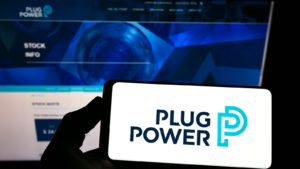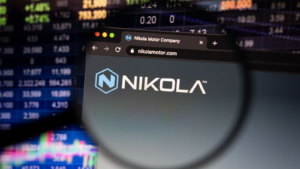
Wall Street loves a good comeback story. It’s why analysts often put elevated price targets on severely beaten-down stocks. All on the belief the stock may be ripe for a rebound after being unfairly sold off. Still, you can’t help but wonder what some analysts are thinking with the lofty price targets they assign to some stocks. They seem all out of whack to reality. What follows are seven high-growth potential stocks according to Wall Street.
They are down at least 59% year-to-date but analysts say they can go as high as 908%! Let’s take a closer look and see whether the price targets are grounded in substance or just pie-in-the-sky wishful thinking with these high-potential growth stocks.
bluebird bio (BLUE)

Biotech bluebird bio (NASDAQ:BLUE) looked like it was on the road to recovery. Having lost 70% of its value at one point, it clawed its way back up so it was only 43% below its 52-week high. But on Friday bluebird got rocked after the US Food & Drug Administration put the strictest label on its new sickle cell disease gene therapy the agency recently approved.
Drug approvals tend to cause stocks to rise, but bluebird’s Lyfgenia got a boxed warning because blood cancers have occurred in patients taking the treatment. That could severely limit the revenue bluebird bio might generate from the drug. The biotech’s stock cratered, plunging 40.5% on the news. Now it sits 59% below where it started the year.
Analysts now have a $6.88 per share target price on the bluebird bio stock. Before the announcement, that implied a reasonable 43% upside present in its shares. Now the stock would need to climb 141% to achieve that level. That is an unlikely outcome given the new warning label on its gene therapy. Wall Street analysts will surely be revisiting their estimates and revising them lower.
DISH Network (DISH)

Satellite TV operator, and another one of the top high-growth potential stocks, DISH Network (NASDAQ:DISH) was also in the doghouse for most of the year but saw its stock crash and burn last month after it posted “astonishingly bad” third-quarter results in the words of MoffettNathanson analysts. DISH served up huge EBITDA losses in wireless and suffered accelerated cord-cutting in pay TV. The debacle led to CEO Erik Carlson resigning.
Shares hit a low of $3.21 per share which implied they would have to more than triple to reach Wall $10.27 per share price target. That seemed improbable as the wheels were coming off the satellite TV stock after it saddled itself with $25 billion in debt which closed off access to capital markets.
The one glimmer of hope DISH had was its pending merger with EchoStar (NASDAQ:SATS), a satellite communications provider flush with cash and comparatively little debt. A successful deal would give DISH the ability to expand its 5G network rollout while financing new mobile and broadband options.
Fortunately, the FCC signed off on the merger last Thursday. Because DISH chairman Charlie Ergen is also the chair of EchoStar, the regulatory body said there was “no substantial change of ownership or control.” The deal is on track to close by the end of the year. Whether DISH can still maneuver itself into a viable operation remains to be seen but the target price might not be so far out of reach for DISH Network stock as it once was.
Solaredge Technologies (SEDG)

Residential solar inverter maker, and another one of the top high-growth potential stocks, Solaredge Technologies (NASDAQ:SEDG) is suffering from industry headwinds. Already laboring under rising interest rates and inflation that make financing a new residential solar system more expensive, new net metering rules may make installing a system even less attractive.
Net metering allows utility customers to sell excess electricity they generate back to the grid. The credits are received to offset the energy costs used. So if you sent as much electricity back to the grid as you used, your bill would be $0. There are programs currently available in 38 states and Washington, D.C.
Now states are changing the rules. They want to roll back the compensation offered because it is unsustainable. California slashed its net metering rates in April, Arizona is revisiting its policies, and Hawaii canceled its program altogether in 2015. It’s going to make solar a less attractive option and make Solaredge’s job of selling inverters harder. An inverter converts a solar panel’s direct current (DC) into alternating current (AC) that can be used in a house. Solaredge is the second-largest inverter manufacturer behind Enphase Energy (NASDAQ:ENPH).
Wall Street still has high hopes for Solaredge Technologies, as another one of the top high-growth potential stocks. Analysts have a $345 price target on the stock indicating they see the inverter maker rising 339% from its current $79 share price. Solar power is still attractive to many. So even if Solaredge doesn’t run as far as analysts suggest, it can still appreciate greatly in value.
SunPower (SPWR)

SunPower (NASDAQ:SPWR) is another solar stock dented by macroeconomic events beyond its control. Shares are down 73% in 2023. Wall Street has a similarly lofty price target for the solar panel maker as it does for the inverter company. Analysts peg Sunpower’s one-year price target at $21.60 per share, a 354% increase from today’s price.
An argument can be made for this bright outlook for the industry. Interest rates seem to have peaked and some analysts are looking for lower rates in 2024. That could spur more system installations. Pricing is more affordable, too. Morgan Stanley (NYSE:MS) says, “Prices for solar panels and components have declined meaningfully since peak levels in the summer of 2023.”
As hopeful as Wall Street is, it may take a bit longer for solar stocks like SunPower to go parabolic. The future is not quite as bright as it was before the Federal Reserve started its maniacal interest rate increases. Still, Sunpower’s stock is cheap enough that investors may want to try and ride this one higher. It’s another one of the high-growth potential stocks to consider.
Plug Power (PLUG)

Another alternative energy stock is Plug Power (NASDAQ:PLUG), which is involved with hydrogen fuel cells. Shares are down 68% this year after trying to rally this past summer. Analysts think PLUG stock could double, triple, or head to the stratosphere with a 620% gain.
For a company with customers as diverse as Amazon (NASDAQ:AMZN), Home Depot (NYSE:HD), and Walmart (NYSE:WMT), it’s a wonder Plug Power rarely makes good on its promise. The relationships continue to expand, but the stock goes nowhere, or worse falls.
That could be because it continues to burn through significant amounts of cash. It also reported just 5% revenue growth in the third quarter while gross margins turned sharply negative. It issued a going concern notice as well. “The company is projecting that its existing cash and available for sale and equity securities will not be sufficient to fund its operations through the next twelve months,” it wrote. Plug said it was pursuing several financing solutions, including tapping a loan program from the Energy Dept.
Money troubles are not unfamiliar to Plug Power investors. The highest stock price targets are absurd. Even forecasting a double at this point seems out of the question. Investors would do well to steer clear of Plug Power.
NovoCure (NVCR)

Medical device maker NovoCure (NASDAQ:NVCR) is traveling a long path lower too. The stock lost 83% of its value this year and there are still two weeks to go. Its novel cancer-fighting device, Optune, attaches to the patient’s head and emits electric fields to slow cancer cell division and spread. It’s called tumor-treating fields (TTFs) and has been approved for use in the U.S. and nine other markets worldwide. It recently launched in France.
Yet third-quarter revenue fell as it ran into reduced collections from denied or appealed claims in the U.S. The device maker is also undergoing a restructuring. It wants to more narrowly focus on the clinical trials of TRIDENT, KEYNOTE D58, and LUNAR-2. As is common in such cases, layoffs play a big role in cost savings. NovoCure is cutting 13% of its workforce.
Analysts remain upbeat nonetheless with price targets ranging from gains of 250% to as much as 777%. All of the options seem out of reach today. If any of NovoCure’s clinical trials using TTFs to treat non-small cell lung cancer or pancreatic cancer pan out next year it could certainly give it a lift. But there’s no guarantee in clinical trials so investors would be wise to tread lightly here.
Nikola (NKLA)

When your stock moves into literal penny stock territory as Nikola (NASDAQ:NKLA) has done, it’s not hard to project fantastic gains. That’s why penny stocks are attractive to many investors. By controlling just a handful of shares you can make tremendous profits if the stock moves up just little. Too often, though, the stock just withers and dies.
That may be the fate of electric truck maker Nikola. The stock goes for $0.68 per share as of this writing, but analysts see the stock doubling, tripling, and even rising by nearly 1,000%! Don’t hold your breath.
Nikola shares are reeling from a variety of problems. It suffered a recall of all of its battery electric vehicles (BEV) due to fire hazards and now faces a cash crunch. It announced it was raising $100 million by issuing new shares along with another $200 million in convertible debt. The new stock will dilute existing shareholders immediately while the convertible debt could dilute them even more in the future if the bondholders convert the debt into shares.
On the date of publication, Rich Duprey did not hold (either directly or indirectly) any positions in the securities mentioned in this article. The opinions expressed in this article are those of the writer, subject to the InvestorPlace.com Publishing Guidelines.





